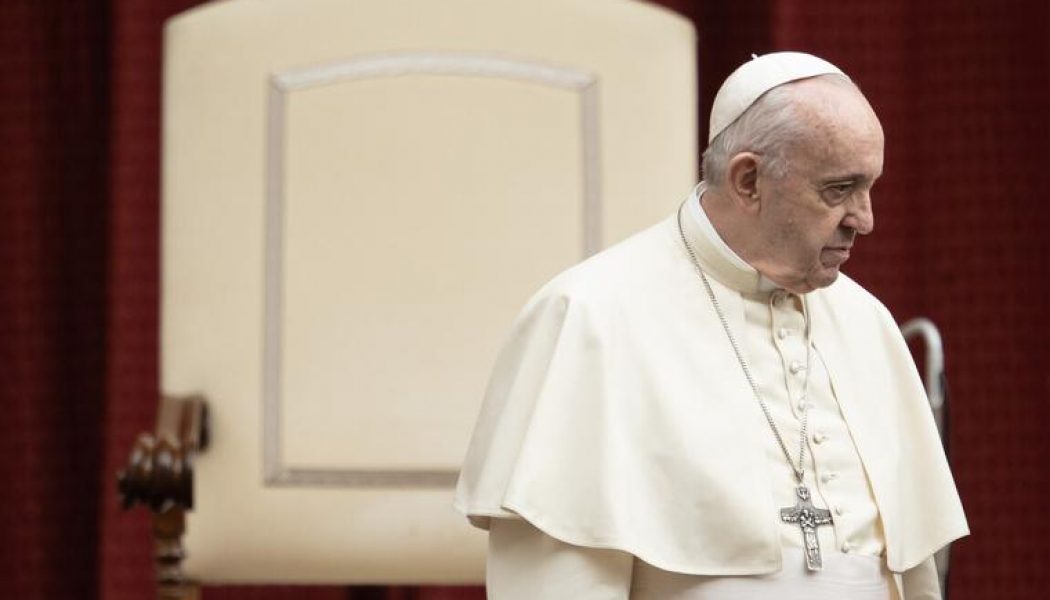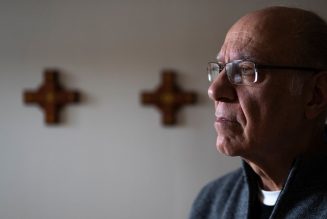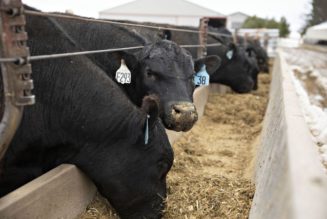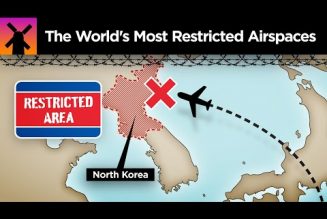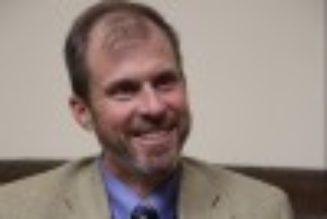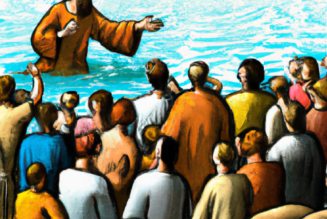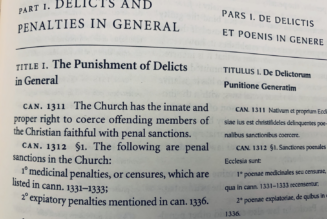
The world will only emerge from the coronavirus crisis better if people become aware of social injustices, review their lives, and “think about ‘we’ and erase the ‘I’ for a while,” Pope Francis has said in a new interview broadcast in Italy on Sunday evening.
Speaking with Fabio Marchese Ragona of the Italian news program, Tg5, the Pope also stressed the importance of “closeness” to those who are suffering and that political leaders in particular have “no right to deviate from unity” at this time.
People have a right to different points of view, he said, and “political struggle is a noble thing,” but “what matters is the intention to help the country grow.”
“If politicians emphasize personal interest over common interest, they ruin things,” the Pope said, adding that “at this moment, a politician — even a manager, a bishop, a priest — who does not have the ability to say ‘we’ is not up to the task.”
“Unity is superior to conflict,” the Pope continued, and he reiterated his recent criticism of those who chose to go on vacation during lockdowns. He referred to “40 private and civilian planes” that left for holidays, a “suicidal move” due to contagion on beaches as well as a “scandal because you don’t think about others and the community anymore.”
“I understand people,” the Pope said, alluding to the suffering inflicted on, for example, a family with “two children living in an apartment.” It is “not an easy situation,” he said, “that’s why closeness is important, also from friends over the phone,” but “running away to do your own thing and go on vacations doesn’t help.”
In line with his emphasis on helping others in the community, the Pope also insisted that “ethically” everyone should be vaccinated against COVID.
Recalling common childhood immunizations such as that against polio, he said he could not “understand why some people say this could be a dangerous vaccine,” Francis said. “If doctors present it to you as something that can be okay and doesn’t have any particular dangers, why not get it?” he asked. “There’s a suicidal denialism that I can’t explain but you have to get the vaccine today.”
The Pope and Vatican personnel are to receive the Pfizer-manufactured vaccine next week. Like many other anti-COVID-19 shots, research for the vaccine drew on fetal cell lines from two elective abortions from the 1960s and 1970s. Last month the Vatican declared their use is “morally licit” because the abortions from which the cell lines originate is “remote.”
The Pope said he understood and was well aware of the seriousness of the economic fallout from the reaction to the pandemic and called on people to be “inventive” and “bold in inventing paths of closeness.” Reiterating a theme from his recent encyclical Fratelli Tutti, the Pope said, “no one is saved alone” and that “if you don’t draw near so that all may be saved, you will not be saved.”
He also railed against concerns that he has frequently highlighted in the past: a “culture of indifference” which, he said, “kills us because it drives us away,” and a tendency to discard people because they are seen as “not useful,” such as the unborn, children and the elderly.
When asked if he was referring to “hitmen” — a term he has used before in reference to those hired to carry out abortions — the Pope said he hadn’t wanted to discuss the issue but the interviewer had “pulled his tongue.” He stressed in his answer that “the problem of death is not a religious problem” but a human, scientific, and a “pre-religious problem of human ethics.” Religions follow it, he said, but it is a problem from everyone’s conscience, even that of an atheist.
“We need a culture of welcoming: instead of discarding, we need to welcome,” he added, referring in particular to migrants. “This is the way to save ourselves: closeness, fraternity, doing everything together. Fraternity that does not mean making a club of friends, no. Everyone.”
As the interview came just days after President Donald Trump was accused of inciting protestors to storm the Capitol building in Washington D.C., Marchese Ragona asked the Pope what he thought of recent scenes of conflict in the United States.
Pope Francis said he was “very astonished” given the country is “such a disciplined people, a democracy, no?” But he added that it is a “reality” that even in the “most advanced societies, there is always something wrong, something about people who take a path against the community, against democracy, against the common good.
He said he thanked God for the events that “erupted” recently as they enabled people to clearly see the problem and so allow it “to be remedied.” But he said such “violence” must be condemned, irrespective of the people,” and that “sooner or later” groups that are “not included in society will cause these situations of violence.”
Reflecting on the pandemic and faith, the Pope stressed that “faith is a gift” and that, in difficult situations, some people will open themselves up to the gift of faith, while others “close themselves more” which, he inferred, can lead to hopelessness and possible suicide. “We have to ask for the gift of faith because God is close to us,” the Pope said. “God presents himself as close and then Jesus Christ became closer because he shared our lives and work, and also problems, Passion and death.”
As to his own experience of the pandemic, the Pope repeated what he said last year: that he felt “caged” but that now he has “calmed down” and “taken life as it comes.” He said, “one prays more, talks more, uses the phone more,” but that he was “happy.” His statio orbis in St. Peter’s Square on March 27 and his Stations of the Cross last Easter were an “expression of the pain that is felt, an expression of love for all people and also to show new ways to help each other.”
But he also pointed out that two papal trips, to Papua New Guinea and Indonesia, have had to be “totally cancelled” because “in good conscience I can’t cause gatherings, can I?” He said he did not know if his planned trip to Iraq in early March will go ahead, although sources have told the Register that at the moment the visit is very likely.
“Life has changed. Shut down,” the Pope said, “but the Lord always helps us all.”
Asked in closing to make a wish for 2021, the Pope said he hoped for a world that “can come out of the crisis better and this means that each of you take courage and think of others” by drawing closer to them.
This also means forming a “culture of fraternity,” he said, one no longer of “discard and indifference” and “selfish attitudes of the ego,” especially among business, religious and political leaders.
“Never make it an ego issue,” he said. “We’ll do the ego later, then unity. Unity is greater than conflict. And pray. Pray more. Thank you.”
Join Our Telegram Group : Salvation & Prosperity
